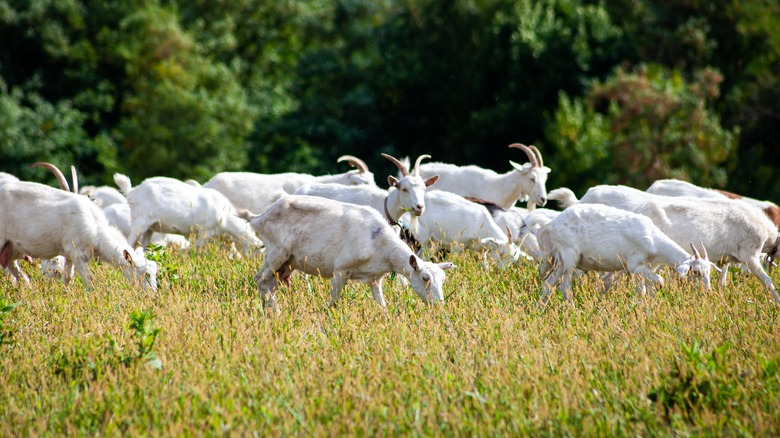The Reason Why Google Headquarters Hired 200 Goats
Don't worry; Google isn't replacing its human workers with four-legged beasties. Not yet, at least. Still, it's probably a good time to update the skills section of your resume: If you can stand for hours at a time, like to investigate strange things, and can speak a foreign language (bleating is a foreign language, right?), it might not be a bad idea to add these if you're looking to get a job at the home of the world's largest search engine.
The Googleplex in Mountain View, California, sprawls across 12 acres, with grass and trees mingled amidst its many buildings. Like most of California, Google's headquarters is nestled within a region wracked by severe drought. Many California-based companies take up green initiatives and do what they can to offset humankind's carbon footprint, because there's always the persistent threat of working in what amounts to a year-round fire season. So, when a company comes up with a novel way to help combat the changing climate, we may not want to brush it off as a silly extravagance.
Such is the curious case of Google's goats.
Google's goats help keep its workers safe
In the spring of 2009, Google hired a local company that brought in some 200 goats for a week to eat (and simultaneously fertilize) the grass surrounding its campus. The goats were less noisy than traditional lawnmowers, and because they didn't use gasoline or spew out exhaust, they were thought to be a more "low-carbon approach" to something that needed to be done anyway. Google claimed it cost about the same as hiring a landscaping company, but were "a lot cuter to watch."
With the worst drought in 1,200 years as of 2021, other cities, states, and countries today are using an old, yet simple technique to clear away areas of dry grass. The goats are excellent for clearing hard-to-reach areas like steep hills or rocky terrain, and a herd of 100 goats can efficiently eat and clear up to an acre in one day.
While lettings goats gobble up everything in sight helps, they're not great for every situation and, in the end, should be used as just one part of a much bigger fire prevention plan.

